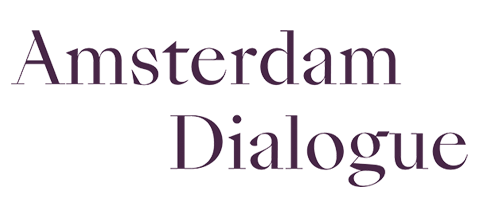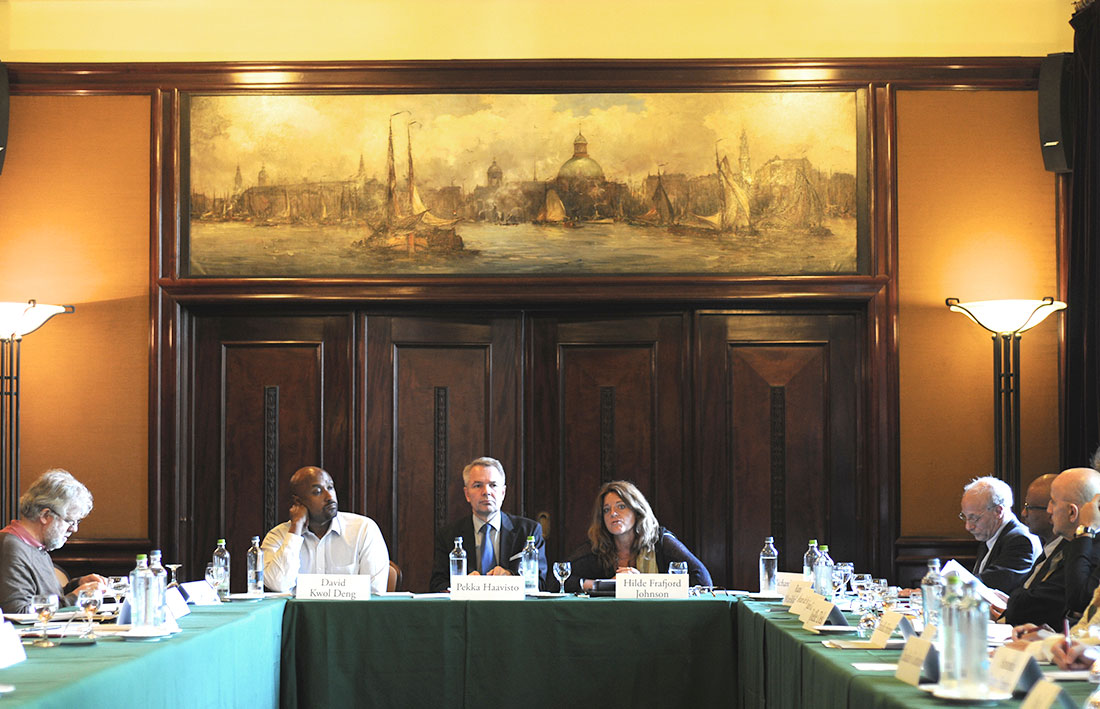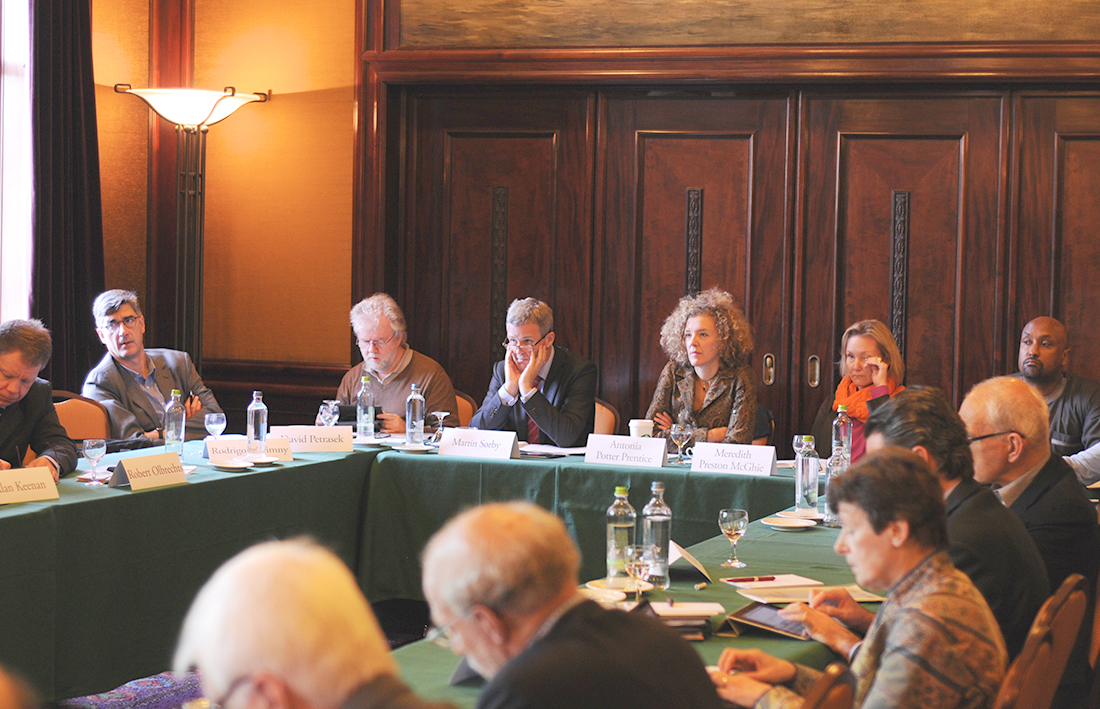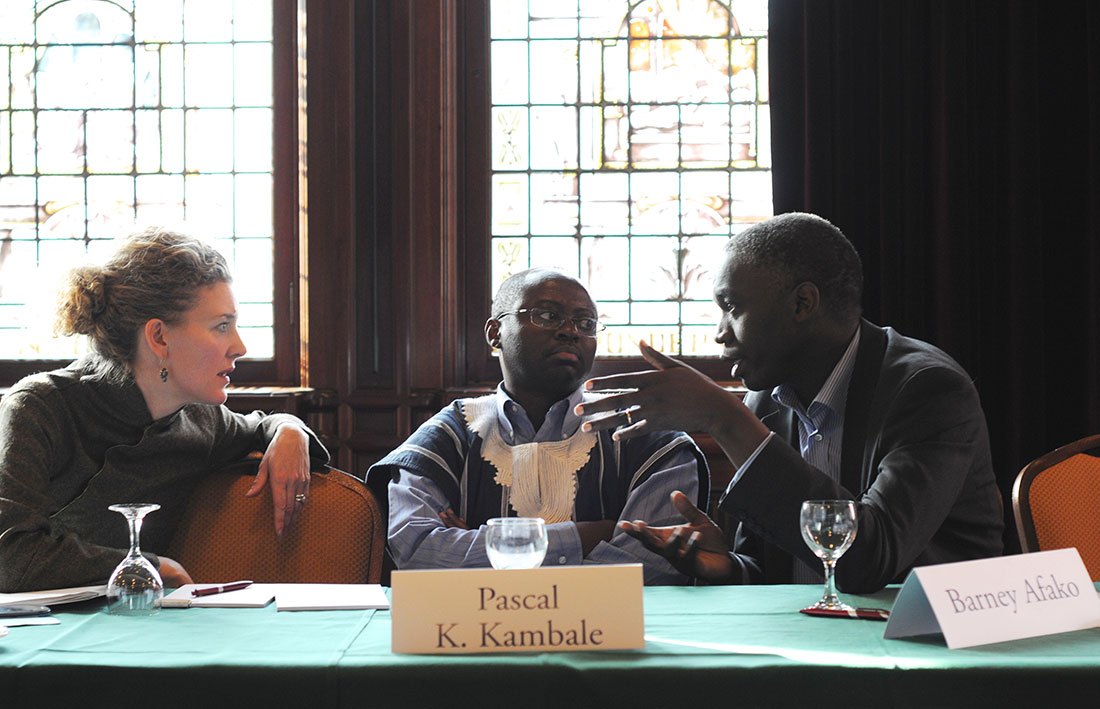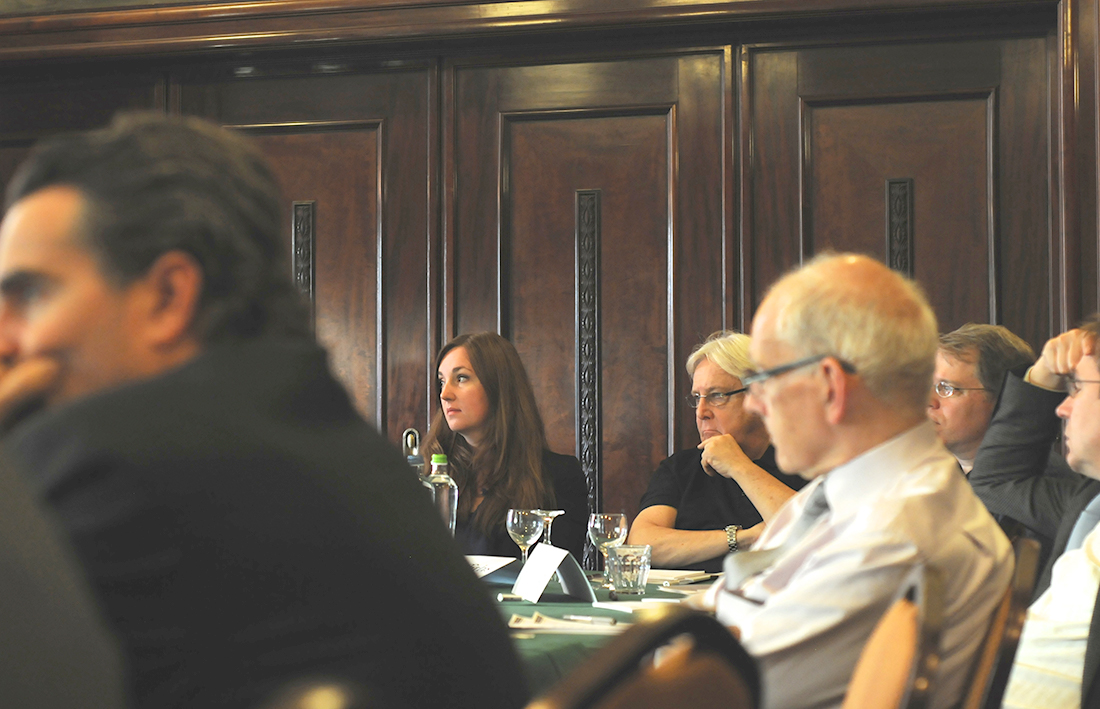Amsterdam Dialogue 2014
9 & 10 OctoberAmsterdam Dialogue 2014
One prominent subject that arose in different sessions of the Amsterdam Dialogue 2014 was the interaction between local efforts and those of the international community in advancing peace and justice. Participants raised concerns about the impact of international legal and political efforts on local situations. The UN Human Rights Council’s involvement in Sri Lanka and how it was received locally is one example where this issue was discussed at length. More generally, some participants pointed to the problem of parallel conversations about the same aspect of a situation occurring at different levels, be it local, regional or global, without being connected. Despite efforts to coordinate, this remains an issue and continues to be a missed opportunity to maximise impact and promote a better understanding of the mutual interests and agendas.
The principle of complementarity, whereby the ICC will only exercise jurisdiction where the State is either unable or unwilling to pursue domestic prosecution, as well as the potential deterrent effect of ICC activity, also resurfaced in multiple sessions. Continuing to build on last year’s discussions surrounding the interpretation of the ‘interests of justice’ clauses in article 53 of the Rome Statute, the general view was that there is a sufficient amount of flexibility in its application. The views of participants on ICC activity in its different situations were diverse, highlighting the importance of continually taking into account contextual uniqueness and complexity. Some participants were critical about the approach of the ICC in Libya, while many participants expressed their approval and encouragement of cooperation between external actors and local initiatives involved in the Central African Republic, South Sudan and the DRC. Issues of proper timing and different levels of involvement at different stages of conflict were raised in the context of specific country sessions. The range of opinions on these topics showed the importance of providing a forum for valuable, high-level discussions on contemporary questions affecting the international community today.
Agenda day 1, Thursday 9 October 2014
13.30 – 14.00 Coffee & Registration
14.00 – 14.30 Welcome & Opening
- Ram Manikkalingam (Director, Dialogue Advisory Group)
- Jonathan Prentice (Chief Policy Officer, International Crisis Group)
- Richard Dicker (Director International Justice Programme, Human Rights Watch)
14.30 – 16.00 Plenary session
South Sudan
- David Deng (Research Director, South Sudan Law Society)
- Hilde Johnson (Former UN Special Representative for South Sudan)
- Moderator: Pekka Haavisto (Former Minister for International Development, Finland)
16.00 – 16.30 Coffee
16.30 – 17.30 Plenary session
The UN Role in the Chemical Weapons Issue in Syria: An Insider’s Perspective
- Angela Kane (UN High-Representative for Disarmaments Affairs)
18.30 – 21.30 Dinner
Agenda day 2, Thursday 10 October 2015
09.00 – 10.30 Plenary session
Democratic Republic of the Congo
- Russ Feingold (US Special Envoy for the Great Lakes and the DRC)
- Mauro Garofalo (Head of International Relations, Community of Sant’Egidio)
- Pascal Turlan (International Cooperation Adviser, Office of the Prosecutor of the ICC)
- Moderator: Fleur Ravensbergen (Assistant Director, Dialogue Advisory Group)
10.30 – 11.00 Coffee
11.00 – 12.30 Parallel break-out sessions
Afghanistan
- Horia Mosadiq (Afghanistan Researcher, Amnesty International)
- Michael Semple (Visiting Professor, Institute for the Study of Conflict Transformation and Social Justice, Queen’s University Belfast)
- Moderator: Juan Garrigues (Special Adviser, Dialogue Advisory Group)
Accountability during War: Peace and Justice Dilemmas
- Barney Afako (Adviser, African Union High Level Implementation Panel)
- Richard Dicker (Director International Justice Programme, Human Rights Watch)
- David Petrasek (Senior Adviser, Dialogue Advisory Group)
- Moderator: Priscilla Hayner (Independent Expert on Peace and Justice)
12.30 – 13.30 Lunch
13.30 – 15.00 Plenary session
Q&A With the Prosecutor of the ICC
- Fatou Bensouda (Chief Prosecutor, Office of the Prosecutor of the ICC)
- Moderator: Martin Griffiths (Executive Director, European Institute of Peace)
15.00 – 15.15 Coffee
15.15 – 16.45 Parallel break-out sessions
Libya
- Jennifer Schense (International Cooperation Adviser, Office of the Prosecutor of the ICC)
- Marieke Wierda (Senior Human Rights Officer at the UN Support Mission in Libya)
- Moderator: Fred Abrahams (Special Adviser Program Office, Human Rights Watch)
Sri Lanka
- Alan Keenan (Senior Analyst Sri Lanka, International Crisis Group)
- Ram Manikkalingam (Director, Dialogue Advisory Group)
- Moderator: David Petrasek (Senior Adviser, Dialogue Advisory Group)
16.45 – 17.30 Closing Remarks
- Ram Manikkalingam (Director, Dialogue Advisory Group)
- Jonathan Prentice (Chief Policy Officer, International Crisis Group)
- Richard Dicker (Director International Justice Programme, Human Rights Watch)
Date
24th September 2014
